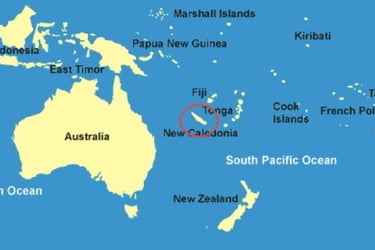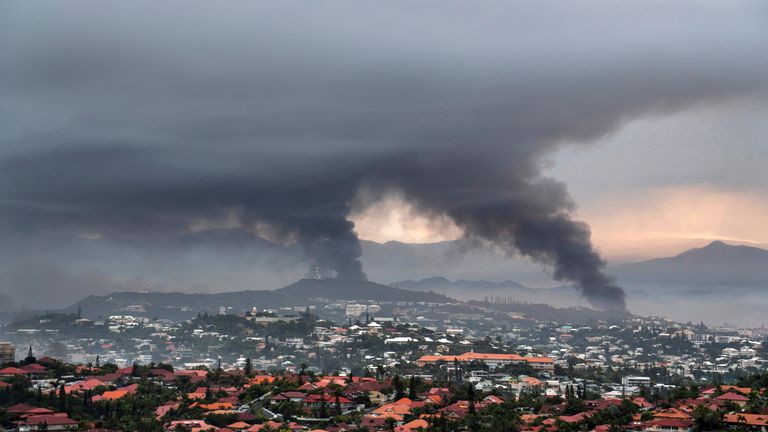New Caledonia: A Lesson for Britain and its Territories?
While FCDO has made great steps in bolstering relations with the Overseas Territories through its hosting of the annual Joint Ministerial Council in London, perhaps the time is now to rethink the structures of mediation and negotiation between Overseas Parliaments, Governors, FCDO, and Westminster.
NEWS FROM THE OVERSEAS TERRITORIESRESEARCH
A proposed voting reform in the French Overseas Department of New Caledonia has triggered an outburst of violence and bloodshed. The rioting, which began in response to legislation from the French National Assembly which would allow French citizens resident in the Department for over 10 years to vote, has been met with a strict crackdown by the French National Guard (gendarmerie). Vacationers have been evacuated, stores looted, and the airport shut down. In the days since the uprising, the UK’s Foreign, Commonwealth, and Development Office (FCDO) has updated their stance to discourage all but essential travel to the territory. With exact figures hard to pin down in the chaos, the number of mortalities remains elusive—still, the level of violence and confirmed deaths on both sides demonstrates a disturbing trend.
While FCDO recognizes the immediate physical danger of the situation in New Caledonia, there is a more insidious danger just beneath the surface. The current violence is a manifestation of an underlying struggle common to all overseas territories: the tension between expatriates and locals. In New Caledonia, the indigenous Kanak make up a dwindling 40% of the population. According to some in the territory, the proposed reforms would effectively erode the value of their citizenship by ‘diluting’ the electorate and allowing more ‘foreigners’ to vote in local elections. This frustration has bubbled up into charged rhetoric—accusations of practices of ‘settler colonialism’ and calls for revolution, which in turn have provoked massive bloodshed.
The situation in New Caledonia is more significant than mere political unrest in a peripheral French Overseas Department however. Rather, it demonstrates new issues with the governance of overseas territories in the twenty-first century as flows of people, labour, and capital become increasingly prominent. The economic model of many of the British Overseas Territories, for example, is dependent on in-flows of capital from developed countries like the United Kingdom and the United States. These in-flows have provided for astonishing economic growth in Bermuda, the BVI, and the Cayman Islands, but this growth has not come for free.
Importing labour requires the government to provide some political rights to these immigrants—especially to long-term residents. Yet, as the New Caledonia crisis crystallises so clearly, increasing political rights for immigrants can marginalise the political interests of locals. In the case of the French Overseas Departments this tension has led to violence, and while no similar bloodshed has occurred in the British Territories, a similar current of tension does exist.
The lesson that ought to be learned from this situation is one which emphasises the importance of political and diplomatic relations between the UK and its Overseas Territories. The carnage in New Caledonia is a worst-case-scenario exemplar of the failure of the political process.
Effective dialogue is the key to maintaining democracy and the rule of law. Communication breakdown in the French Territories has led to the suspension of law and the imposition of a state of emergency. Democratic institutions can only live on effective political communication between all involved actors; when one group feels marginalised, inherent tensions become manifest in violence.
New Caledonia should serve then as a perfect case study for both the UK and its Overseas Territories of the dangers of indirect or ineffective communication. While none of the British Overseas Territories are at the point of violent uprising, it is certain that disgruntled local groups are feeling increasingly marginalised and unrepresented by existing governance systems.
While FCDO has made great steps in bolstering relations with the Overseas Territories through its hosting of the annual Joint Ministerial Council in London, perhaps the time is now to rethink the structures of mediation and negotiation between Overseas Parliaments, Governors, FCDO, and Westminster.




